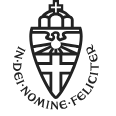Introduction
Radboud University Nijmegen, officially known as "Radboud University", is a public comprehensive research university located in Nijmegen, the Netherlands.
Overview
Student size: In October 2021, the school had a total of 24,678 students.
Faculty size: 2,735 administrative staff.
History and establishment time
The earliest Nijmegen University was founded in 1655, when it was called "Kwartierlijke Academie van Nijmegen". It had traditional faculties such as theology, medicine, and law, but it was terminated around 1680 due to the outbreak of the Black Death and the French invasion.
On October 17, 1923, with the fundraising of Dutch Catholics, the school was reopened and named "Catholic University of Nijmegen". Initially, there were only 189 students and 32 Professors, with three departments of Theology and Philosophy, Politics and Literature, and Law.
During World War II, the University of Nijmegen was the only university in the Netherlands that refused to surrender to the occupying German army. The president refused to force students to pledge allegiance to the German occupiers. Many professors were sent to the Dachau concentration camp for supporting the resistance movement. The school was also destroyed in the German bombing and forced to close.
In 1949, the school repurchased land in the center of Nijmegen and rebuilt it again with the support of the Radboud Foundation and the Dutch government. In 1960, it was fully funded by the Dutch Ministry of Education and nationalized. Subsequently, the school continued to expand.
In 2004, in order to commemorate Pope Radboud's outstanding contribution to the Netherlands, the school was renamed "Radboud University Nijmegen".
School Strength
Faculty: Among the professors teaching at the school, there are 32 academicians of the European Academy of Sciences, such as Prof. Dr. Anne Cutler in the field of psycholinguistics. They have profound attainments and rich teaching and research experience in their respective professional fields, providing students with high-quality education and guidance.
Research results: 2020 In 2017, the university awarded 391 doctoral degrees and published 8,396 scientific articles. Its research results have a high international influence.
Nature of the institution
Public research university.
Educational philosophy
Radboud University is a student-oriented international research university that emphasizes the cultivation of students' scientific literacy and social responsibility, encourages students to participate in various academic and social activities, and cultivates their insight and critical spirit on scientific and social issues. The school requires most students to go to foreign universities for at least a few months of exchange and study during their stay in school to broaden their international perspectives.
Key laboratories and disciplines
Key laboratories:
Donders Institute for Brain, Cognition and Behavior: It is an academic research center in psycholinguistics and neurocognitive science in the whole of Europe. It has more than 600 researchers, including 10 members of the European Academy of Sciences. Its subordinate institutions include the Institute of Language Psychology of the Max Planck Society, the Center for Language Research, the Center for Cognitive Science, the Center for Neuroscience, the Center for Cognitive Neuroimaging Technology and other 5 affiliated institutions.
Netherlands National High Magnetic Field Laboratory: It is one of the five major high magnetic field research centers in the world. It belongs to the Dutch National Roadmap Plan and has 300 There are many researchers, including 5 members of the European Academy of Sciences, and 2 Nobel Prize winners in Physics.
Key disciplines: The school has a high academic status and wide influence in Europe in many fields such as psycholinguistics, cognitive neurobiology, theoretical and astrophysics, stomatology, clinical medicine, molecular biology and genetics, immunology, and religious studies. Its medical center's stomatology, neurobiology, molecular biology and genetics have performed well in the world university professional rankings.
Faculty
The school has a total of 7 colleges (departments), namely:
Medical Department: Including the School of Dentistry and the School of Public Health, namely Radboud University Medical Centre, Radboud UMC.
School of Science: covers multiple basic disciplines such as physics, chemistry, biology, mathematics, etc., providing students with a solid science education and scientific research environment.
Faculty of Arts: has majors such as linguistics, art and cultural studies, Dutch and culture, Romance languages and culture, etc., focusing on cultivating students' humanistic qualities and language expression skills.
School of Law: has a solid teaching and research foundation in legal theory and practice, and has cultivated many outstanding legal professionals.
School of Management: provides comprehensive management education, including professional directions such as business management and public management, providing strong support for students' career development.
School of Social Sciences: involves disciplines such as sociology, political science, and public administration, and is committed to studying social phenomena and social problems, and cultivating students' social analysis and problem-solving abilities.
School of Philosophy, Theology and Religion: conducts in-depth academic research and teaching in the fields of philosophy, theology and religion, and inherits and promotes relevant academic thoughts and cultural traditions.
Ranking
Ranked 143rd in the 2024 Times Higher Education World University Rankings.
Ranked 222nd in the 2024 QS World University Rankings .
Expenses
Tuition fees: Tuition fees for different majors vary. Undergraduates generally pay 8,000-12,000 euros per year, while masters pay 12,000-18,000 euros per year. Doctoral students usually receive tuition waivers and corresponding scholarships and allowances.
Living expenses: Including accommodation, food, transportation, etc., it costs about 800-1,200 euros per month. The specific cost varies depending on personal lifestyle and consumption habits.
Campus
Environmental facilities: The campus is located in Nijmegen, the oldest city in the Netherlands. It has a beautiful environment and a high green coverage rate. It has modern teaching buildings, libraries, laboratories, gymnasiums and other facilities, providing students with good learning and living conditions.
Campus culture: The school has a variety of campus cultural activities. Students can participate in various academic lectures, club activities, sports competitions, etc. to enrich their extracurricular life and expand their interpersonal relationships.
-

Delft University of Technology
-
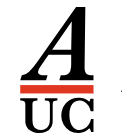
Amsterdam University College
-

University of Amsterdam
-

TIAS School for Business and Society
-
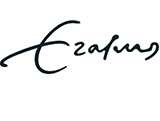
Erasmus University Rotterdam
-
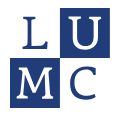
Leiden University Medical Center
-
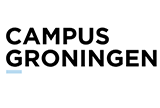
University Medical Center Groningen
-
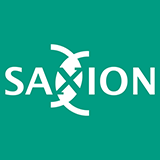
Saxion University of Applied Sciences
-

Academic Hospital Maastricht
-

Wageningen University and Research Centre
-

Mesoamerican University
-

Istmo University
-

Mariano Galvez University of Guatemala
-

Regional University of Guatemala
-

Galileo University
-

Francisco Marroquín University
-

Rafael Landívar University
-

University of the Valley of Guatemala
-

University of San Carlos of Guatemala
-

Technological Institute of Tlaxcala Plateau
-

Golfo University
-

Technological University of South Sonora
-

Technological University of Huejotzingo
-

Tizimín Institute of Technology
-

Chilpancingo Institute of Technology

